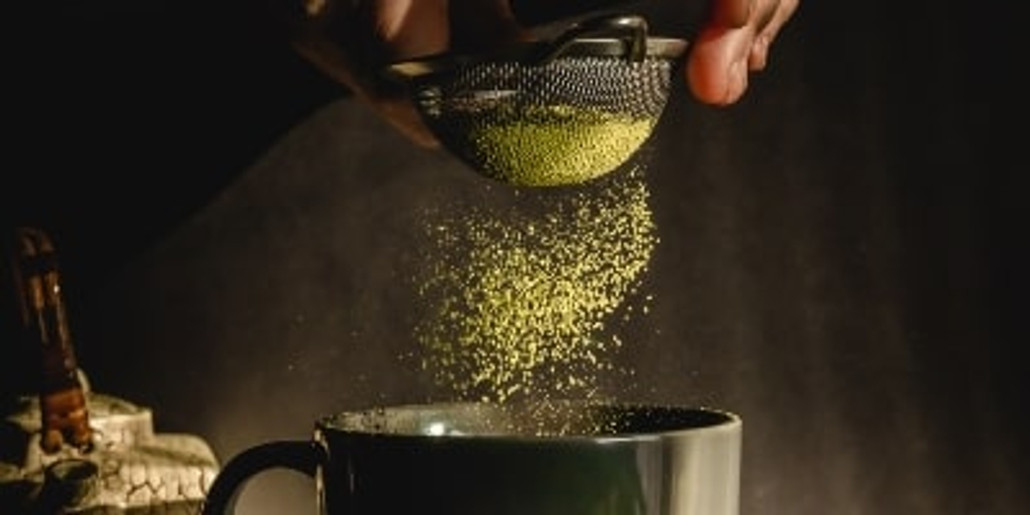Posted by Jeffrey Chipson on Jun 12th 2023
Discover the Difference: White Tea vs Matcha Tea - A Comparison
Ever stood at the crossroads of the tea world, gazing into the abyss of uncertainty, querying the distinction between white tea and its much-celebrated counterpart, matcha tea? Welcome aboard, you're not alone. As inhabitants of the Western hemisphere, we're well-acquainted with green tea, but Asia offers us a myriad of aromatic mysteries to unravel. Dressed in oriental charm, white and matcha teas are increasingly stealing the limelight. This exploratory piece will traverse the intriguing alleys of these two teas, sifting through their differences, inherent health boons, and the art of their preparation.
Bathed in international adoration, white and matcha teas wave their origins proudly from diverse corners of the Asian continent. Fujian Province of China cradles the delicate leaves destined to become white tea, while Japan basks in the glory of being the birthplace of matcha tea. The world recognizes these teas as treasury chests brimming with antioxidants, vitamins, and minerals. Yet, beneath this shared richness lie distinct characteristics worthy of exploration.
An Intricate Glimpse into White Tea
The world reveres white tea, recognizing it as a champion among teas. Its production story begins with the careful harvesting of the tea plant's buds and leaves. Drying them draws out their quintessential character, laying the foundation for its delightfully soothing flavor and serene color. Health enthusiasts laud it for being a veritable fount of antioxidants and vitamins.
White tea's journey, rooted in China's Fujian Province, involves the careful selection of the plant's youngest, most tender leaves. A gentle drying process, followed by a second rolling and drying phase, lend it an incomparable taste. With a caffeine count typically lower than other teas, it's a calming choice for those sensitive to caffeine's jitters.
White tea's reputation as a health elixir stems from its abundance of polyphenols, known to fend off certain types of cancer and cardiovascular disease. Catechins, another type of compound present in this tea, carry the banner for battling inflammation and bolstering the immune system.
Diving into the Matcha Tea Universe
Matcha tea, a vibrant green marvel from Japan, treads a different path. It takes the harvested leaves of the tea plant, dries them, and grinds them into an exquisite powder. This powder, mingling with hot water, births matcha tea with its signature flavor, color, and superlative health benefits.
The creation tale of matcha tea, narrated in Japan, paints a picture of tea leaves nurtured in the shade, their drying process granting the tea its unique flavor. Unlike other teas, matcha involves the entire leaf, ensuring an elevated presence of antioxidants and vitamins. It's also a favorite pick-me-up, given its higher caffeine levels.
A Comparative Study: White Tea vs Matcha Tea
Having traversed the basic terrains of white and matcha teas, let's pit them against each other. The first distinction appears in their creation process: white tea relies on harvested, dried buds and leaves, whereas matcha tea involves the grinding of shade-dried Japanese tea leaves.
Their flavors further distinguish them - white tea's gentle, light notes contrast with matcha tea's unique, bold flavor palette. Caffeine sensitivity may nudge you towards white tea, which typically has a lower caffeine content.
Health benefits are another domain of differentiation. While white tea touts high antioxidant content, manifested in polyphenols and catechins, matcha tea employs the whole leaf to up the ante on antioxidants, vitamins, and minerals.
The Health Prowess of White Tea
White tea carries an impressive resume of health merits. Rich in antioxidants and vitamins, it's celebrated for its anti-inflammatory and anti-cancer prowess, courtesy of polyphenols and catechins. It's a shield against UV damage, reduces stress through the presence of theanine, an amino acid, and even bestows anti-aging benefits. Besides, it aids digestion, boosts metabolism, and could lower cholesterol levels.
The Matcha Tea Health Trove
The health trove that matcha tea unlocks is equally remarkable. Packed with antioxidants, vitamins, and minerals, it offers anti-inflammatory and anti-cancer benefits. Matcha tea’s theanine content helps in stress reduction, it has anti-aging properties, and can even provide protection against UV damage. Plus, it supports digestion, enhances metabolism, and could aid in cholesterol reduction.
Creating Your Cup of White Tea
Producing white tea involves heating water till it's hot but shy of boiling. A general rule of thumb is to use a teaspoon of white tea leaves per cup of water. Allow the leaves to steep for about 3-5 minutes, then strain and savor your cup of tranquillity.
Brewing Your Matcha Tea
Matcha tea’s preparation demands a bit more finesse. As with white tea, heat water till it's hot, not boiling. For every cup of water, a teaspoon of matcha powder should suffice. Whisk or blend the powder into the water until it's smoothly integrated, and voila, your cup of vibrance is ready.
White Tea vs Matcha Tea - Your Choice?
So, at this juncture, you might wonder, which tea should I embrace? Both white and matcha teas carry distinctive flavors and health benefits. If you seek a low-caffeine, mellow brew, white tea is your cup. If you crave a bold-flavored, caffeine-rich elixir, matcha tea won’t disappoint.
In Conclusion
White and matcha teas, originating from distinct Asian landscapes, have won hearts globally. Fujian Province in China whispers the story of white tea, while Japan boasts of the bold matcha tea tale. Both these teas, brimming with antioxidants, vitamins, and minerals, also present their unique flavors and health benefits.
In choosing between white tea and matcha tea, your preferences and needs should take center stage. So why not plunge into this exquisite tea adventure and choose the brew that resonates with your palate and wellness goals? Happy tea tasting!

